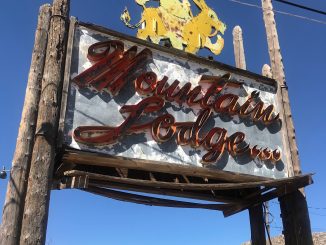
Jan. 30
1649: England’s King Charles I was executed for high treason.
1933: Adolf Hitler was named chancellor of Germany.
1948: Indian political and spiritual leader Mohandas K. Gandhi, 78, was shot and killed in New Delhi by Nathuram Godse, a Hindu extremist.
1968: The Tet Offensive began during the Vietnam War as Communist forces launched surprise attacks against South Vietnamese towns and cities.
1969: The Beatles staged an unannounced concert atop Apple headquarters in London that would be their last public performance.
1972: 13 Catholic civil rights marchers were shot and killed by British soldiers in Northern Ireland on what became known as “Bloody Sunday.”
Jan. 31
1863: During the Civil War, the First South Carolina Volunteers, an all-Black Union regiment composed of many escaped slaves, was mustered into federal service at Beaufort, South Carolina.
1958: The United States entered the Space Age with its first successful launch of a satellite, Explorer 1, from Cape Canaveral.
1971: Astronauts Alan Shepard, Edgar Mitchell and Stuart Roosa blasted off aboard Apollo 14 on a mission to the moon.
Feb. 1
1865: Abolitionist John S. Rock became the first Black lawyer admitted to the bar of the U.S. Supreme Court.
1943: During World War II, one of America’s most highly decorated military units, the 442nd Regimental Combat Team, made up almost exclusively of Japanese Americans, was activated.
1960: Four Black college students began a sit-in protest at a Woolworth’s lunch counter in Greensboro, North Carolina, where they had been refused service.
Feb. 2
1653: New Amsterdam — now New York City — was incorporated.
1887: Punxsutawney, Pennsylvania, held its first Groundhog Day festival.
1913: New York City’s rebuilt Grand Central Terminal officially opened to the public at one minute past midnight.
1914: Charles Chaplin made his movie debut as the comedy short “Making a Living” was released by Keystone Film Co.
Feb. 3
1865: President Abraham Lincoln and Confederate Vice President Alexander H. Stephens held a shipboard peace conference off the Virginia coast; the talks deadlocked over the issue of Southern autonomy.
1959: On what would become known as “the day the music died,” rock-and-roll stars Buddy Holly, Ritchie Valens and J.P. “The Big Bopper” Richardson died in a small plane crash near Clear Lake, Iowa.
Feb. 4
1783: Britain’s King George III proclaimed a formal cessation of hostilities in the American Revolutionary War.
1913: Rosa Parks was born Rosa Louise McCauley in Tuskegee.
1945: President Franklin D. Roosevelt, British Prime Minister Winston Churchill and Soviet leader Josef Stalin began a wartime conference at Yalta.
1974: Newspaper heiress Patricia Hearst, 19, was kidnapped in Berkeley, California, by the radical Symbionese Liberation Army.
Feb. 5
1811: George, the Prince of Wales, was named Prince Regent due to the mental illness of his father, Britain’s King George III.
1922: The first edition of Reader’s Digest was published.
1971: Apollo 14 astronauts Alan Shepard and Edgar Mitchell stepped onto the surface of the moon in the first of two lunar excursions.



